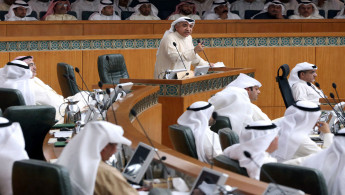Kuwait MPs demand urgent debate on petrol price hike
Some 35 MPs signed the motion requesting the session which aims at discussing the reasons behind the government's decision to raise its heavily subsidised petrol prices for the first time in 20 years.
No details have yet been confirmed and the date of the meeting will be arranged with the government.
The increase was harshly criticised by a large number of lawmakers since it came into effect on 1 September.
It resulted in a rise in the prices of commodities and goods, critics said, as they urged the government to compensate Kuwaiti citizens who make up around 30 percent of the 4.3 million population, in contrast to the 3 million foreigners living in the Gulf state.
The decision is part of a number of measures set out by the government in a bid to meet budget deficit after the sharp drop in oil revenues that previously made up around 95 percent of the country's total income, the cabinet said.
The OPEC member recorded a budget shortfall of 4.6 billion dinars ($15.3 billion) in the fiscal year, which ended on 31 March, Anas al-Saleh said in a statement carried by the KUNA news agency in August.
It was the first shortfall since the fiscal year to March 1999. Gulf States including Kuwait were hoping oil prices would stabilise in 2016.
The continued lows pushed revenues down by 45 percent to $45.2 billion while spending was cut by 14.8 percent to $60.5 billion, the minister said.
Oil income was $40.1 billion, a slump of 46.3 percent from the previous year, he said.
Oil currently account for 89 percent of total revenues.
Last year, Kuwait raised the prices of diesel and kerosene and also decided to lift electricity and water charges on foreign residents.
The ratings agency Moody's said that the fuel price reforms will boost Kuwait's credit ratings because they will lower current expenditures and bolster government finances.





 Follow the Middle East's top stories in English at The New Arab on Google News
Follow the Middle East's top stories in English at The New Arab on Google News


